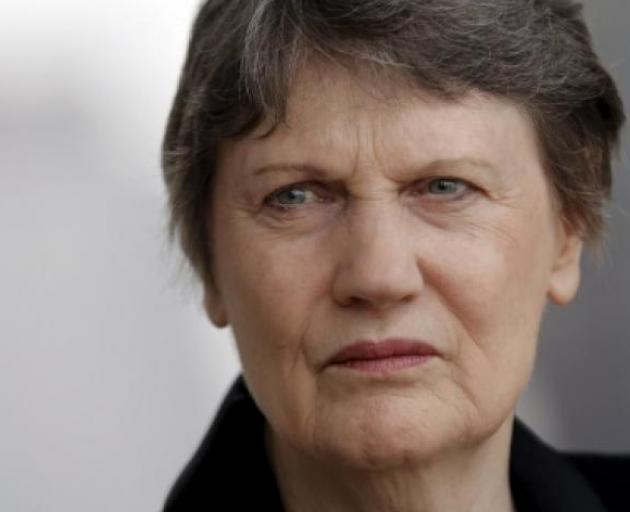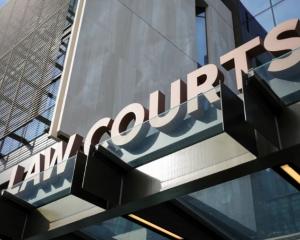
New Zealand is lagging behind the rest of the world through its failure to recognise Palestinian statehood, former prime minister Helen Clark says.
Canada today became the latest country to announce it would formally recognise the state of Palestine when world leaders met at the United Nations General Assembly in September.
It follows recent similar commitments from the United Kingdom and France.
Prime Minister Christopher Luxon yesterday suggested the discussion was a distraction, saying the immediate focus should be on getting humanitarian aid into Gaza.
But, speaking to RNZ's Midday Report programme today, Clark said New Zealand needed to come on board.
"We are watching a catastrophe unfold in Gaza. We're watching starvation. We're watching famine conditions for many. Many are using the word genocide," she said.
"If New Zealand can't act in these circumstances, when can it act?"
The Elders, a group of world leaders Clark is part of, last month issued a call for countries to recognise the state of Palestine, calling it the "beginning, not the end of a political pathway towards lasting peace".
Clark said the government seemed to be trying avoid the ire of the United States by waiting until the peace process was well under way or nearing its end.
"That is no longer tenable. New Zealand really is lagging behind."
Even before the recent commitments from France, Canada and the UK, 147 of the UN's 193 member states had recognised the Palestinian state.
Clark said the hope was that the series of recognitions from major Western states would first shift the US position and then Israel's.
"When the US moves, Israel eventually jumps because it owes so much to the United States for the support, financial, military and otherwise.
"At some point, Israel has to smell the coffee."
She was "a little surprised" that Foreign Minister Winston Peters had not been more forward-leaning, given he historically had strongly advocated New Zealand's even-handed position.
New Zealand yesterday signed a joint statement with 14 countries expressing a willingness to recognise the State of Palestine as a necessary step towards a two-state solution.
However, later speaking in Parliament, Peters said that was conditional on first seeing progress from Palestine, including representative governance, commitment to non-violence and security guarantees for Israel.
"If we are to recognise the state of Palestine, New Zealand wants to know that what we are recognising is a legitimate, representative, viable, political entity," he told MPs.
Peters agreed with a contribution from ACT MP Simon Court that recognising the state of Palestine could be viewed as "a reward [to Hamas] for acts of terrorism" if it was done before Hamas had returned hostages or laid down arms.
Luxon earlier told RNZ New Zealand had long supported the eventual recognition of Palestinian statehood, but that the immediate focus should be on getting aid into Gaza rather than "fragmenting and talking about all sorts of other things that are distractions".
"We need to put the pressure on Israel to get humanitarian assistance unfettered, at scale, at volume, into Gaza.
"You can talk about a whole bunch of other things, but for right now, the world needs to focus."
Australia supports two-state solution - Albanese
Australian Prime Minister Anthony Albanese said today that he had discussed the crisis in Gaza with his UK counterpart, Sir Keir Starmer, and reiterated his government's strong support for a two-state solution for Israel and the Palestinians, Reuters reports.
Starmer this week said Britain was prepared to recognise Palestinian state at the UN General Assembly in response to growing public anger over the images of starving children in Gaza.
The war began on October 7 in 2023, when Hamas led attacks on communities and military bases in southern Israel in which some 1200 people were killed, including more than 700 civilians, and another 251 taken as hostages to Gaza, according to Israeli tallies.
Since then, Israel's offensive in the Gaza Strip has killed more than 60,000 people and laid waste to much of the territory, the Gaza health ministry says.
- additional reporting by Reuters













